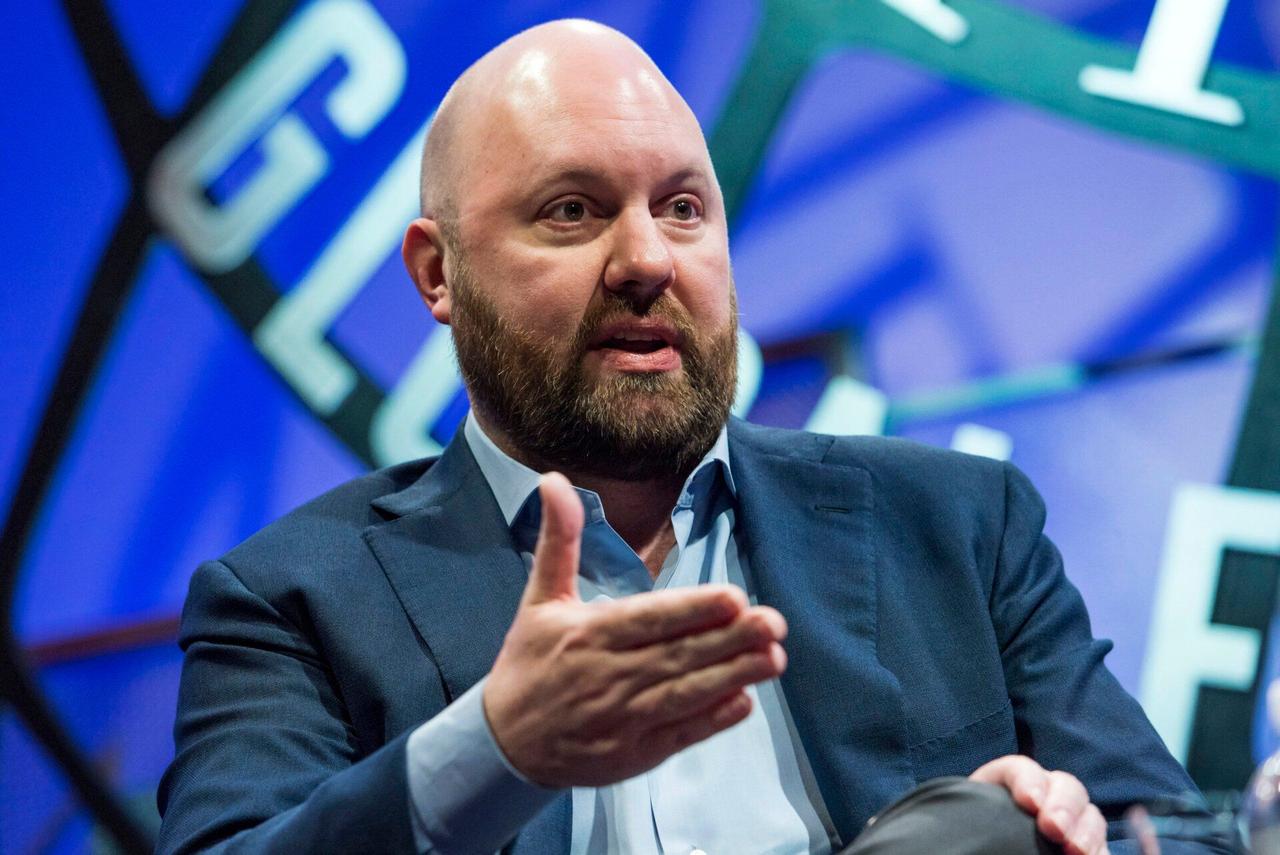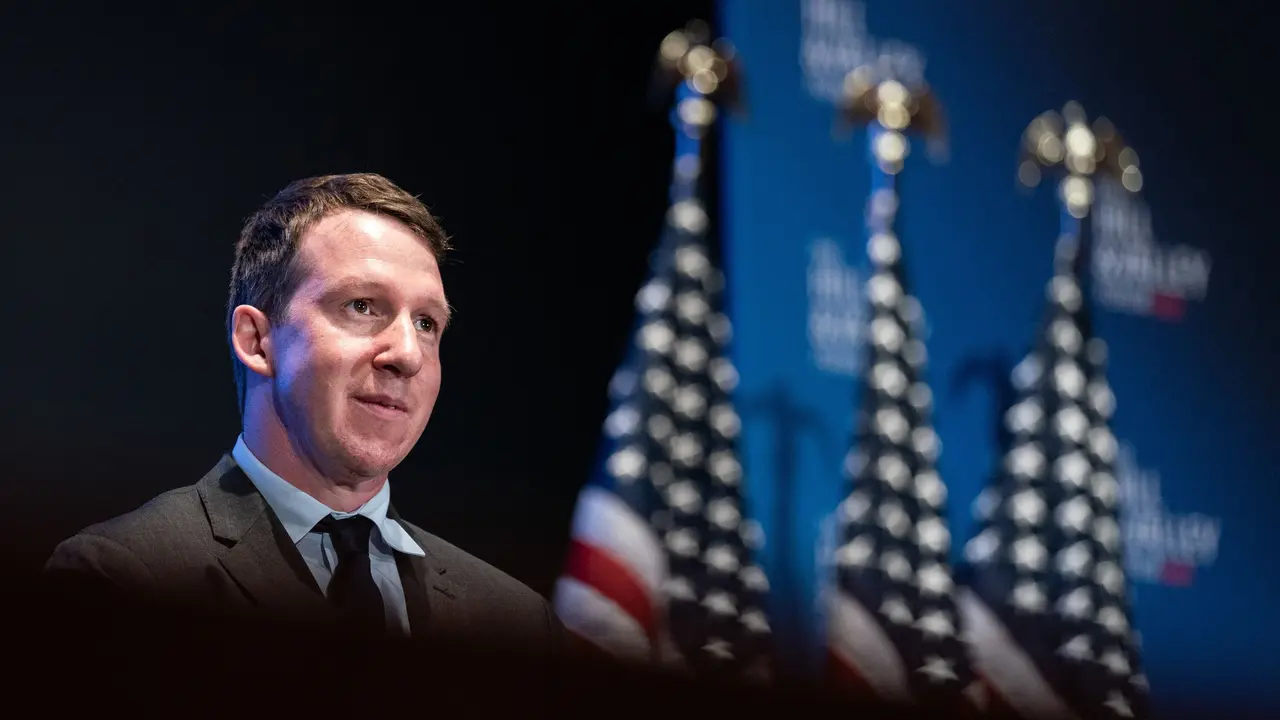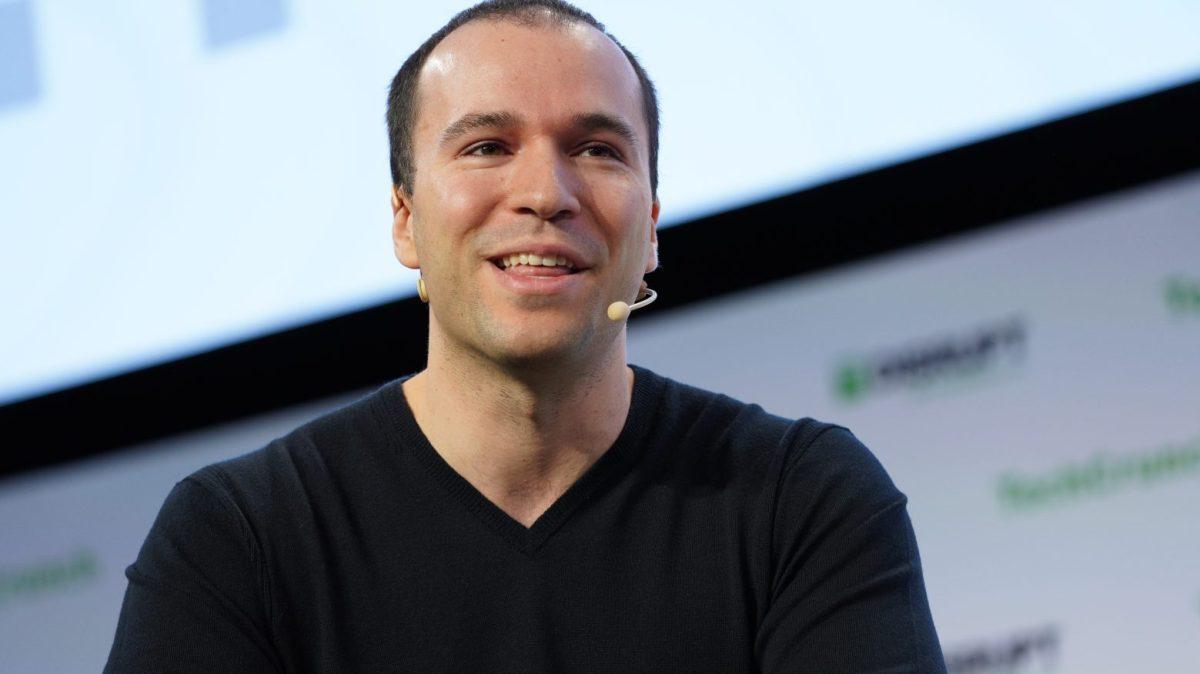AI Industry Super PAC Targets New York Lawmaker Behind AI Safety Bill
3 Sources
3 Sources
[1]
A16z-backed super PAC is targeting Alex Bores, sponsor of New York's AI safety bill. He says bring it on. | TechCrunch
A pro-AI super PAC backed by Andreessen Horowitz and OpenAI President Greg Brockman has chosen New York Assembly member Alex Bores - and his congressional bid - as its first target. The PAC, dubbed Leading the Future, formed in August with a more than $100 million commitment to support policymakers with a light-touch - or a no-touch - approach to AI regulation. And that means going after policymakers who want to regulate AI. The super PAC has backing from a number of other prominent leaders in tech, including Palantir co-founder and 8VC managing partner Joe Lonsdale as well as AI search engine Perplexity. "I appreciate how straightforward they're being about it," Bores told a room of journalists Monday evening at a Journalism Workshop on AGI impacts and governance in Washington D.C. "When they say, 'Hey, we're going to spend millions against Alex because he might regulate Big Tech and put basic guardrails on AI,' I just basically forward that to my constituents." Bores, who's running to represent the state's 12th Congressional District, said AI anxieties are on the rise among his constituents, who worry about everything from data centers pushing up utility bills and worsening climate change to chatbots impacting kids' mental health and automation transforming the job market. Bores is the chief sponsor of New York's bipartisan RAISE Act, which requires large AI labs to have a safety plan in place to prevent critical harms, follow their own safety plan, and disclose critical safety incidents, like bad actors stealing an AI model. The bill also prohibits AI firms from releasing models with unreasonable risks of critical harm and imposes civil penalties of up to $30 million if companies fail to live up to these standards. The legislation is currently awaiting Gov. Kathy Hochul's signature. Bores said while drafting and redrafting the bill, he consulted with the large AI firms like OpenAI and Anthropic. Those negotiations led to the removal of provisions like third-party safety audits, which he says the industry refused to accept. Nevertheless, the RAISE Act, and Bores himself, appears to have incurred the ire of Silicon Valley. Zac Moffatt and Josh Vlasto, heads of Leading the Future, told Politico that they would work on a multi-billion dollar effort to sink Bores's campaign. In a statement sent to TechCrunch, they accused Bores of advancing "ideological and politically motivated legislation that would handcuff not only New York's, but the entire country's ability to lead on AI jobs and innovation." The pair said "bills like the RAISE Act threaten American competitiveness, limit economic growth, leave users exposed to foreign influence and manipulation, and undermine our national security." "The RAISE Act is a clear example of the patchwork, uninformed, and bureaucratic state laws that would slow American progress and open the door for China to win the global race for AI leadership," Moffatt and Vlasto said in the emailed statement. "America needs one clear and consistent national regulatory framework for AI that strengthens our economy, creates jobs for American workers, supports vibrant communities, and protects users." Many in Silicon Valley have pushed to prohibit states from passing regulation that relates to AI. Earlier this year, a provision blocking state AI laws was slipped into the federal budget bill and was later removed. Now, lawmakers like Sen. Ted Cruz are seeking to resurrect it through other legislative avenues. Bores said he is concerned such a movement could continue to gain legs at a time when the federal government has passed no meaningful AI regulation. Where federal government moves slow, states are like startups - they can function as policy laboratories and move fast to test what works. "The question should be, has Congress solved the problem?," Bores said. "If Congress solves the problem, then it can tell the states to get out of the way, but if they're not going to pass a bill that's actually addressing any of the problems...and then [saying that states can't do anything] that just doesn't make sense to me." Bores also noted he has been in contact with policymakers in other states to work on standardizing legislation, which could combat Silicon Valley's "patchwork" objection. He also believes that lawmakers should ensure there are no redundancies with the EU AI Act. Bores emphasized that AI regulation isn't meant to limit innovation, and that he has rejected bills that he thinks would have unintended consequences for the industry. "Having basic rules of the road, literal or metaphorical, is actually a very pro-innovation stance if done well," Bores said. "I fundamentally believe that the AI that wins is going to be the AI that is trustworthy. And the pushback from industry to say that government has no role in establishing that trust is one that I think you're seeing people reject at every level."
[2]
AI industry-backed super PAC targets New York Democrat in opening shot of midterms
A bipartisan super PAC launched by a slew of artificial intelligence leaders has picked its first target: a Democratic congressional candidate who helped lead an effort to put safety measures on the AI industry. Alex Bores, a New York State Assemblymember, has pushed "ideological and politically motivated legislation" that would "handcuff" the nation's edge on AI, the heads of the "Leading the Future" PAC said in a statement Monday morning. Bores, who is running to represent New York's 12th Congressional District, co-sponsored the RAISE Act, a New York state-level bill that requires the largest AI companies to publish safety protocols for serious misuse use of their tech, such as creating biological weapons or carrying out other criminal activity. The legislation, short for "Responsible AI Safety and Education," also forces companies to disclose serious incidents, or else face civil penalties from the state attorney general. The bill passed in the state assembly and senate months ago, but New York Gov. Kathy Hochul, a Democrat who has touted AI investments in the Empire State, has yet to sign it into law. Bores and the bill's other co-sponsor in the assembly, Andrew Gounardes, maintain that the RAISE Act has been crafted not to stifle innovation in the fast-moving AI sector. A controversial bill in California to erect safety guardrails on AI was vetoed by Democratic Gov. Gavin Newsom in September amid concerns that it would create a chilling effect on the industry. Leading the Future, which launched over the summer with more than $100 million in backing, insists that the RAISE Act poses the same threat. "The RAISE Act is a clear example of the patchwork, uninformed, and bureaucratic state laws that would slow American progress and open the door for China to win the global race for AI leadership," the PAC's leaders, political strategists Zac Moffatt and Josh Vlasto, said in their statement. "America needs one clear and consistent national regulatory framework for AI that strengthens our economy, creates jobs for American workers, supports vibrant communities, and protects users," they said. "Bills like the RAISE Act threaten American competitiveness, limit economic growth, leave users exposed to foreign influence and manipulation, and undermine our national security." Bores, in a statement to CNBC, fired back: "I am someone with a master's in computer science, two patents, and nearly a decade working in tech. If they are scared of people who understand their business regulating their business, they are telling on themselves." Later Monday morning, Bores turned the super PAC's attack into a fundraising opportunity for his congressional primary campaign. "If you don't want Trump mega-donors writing all tech policy, contribute to help us pushback," he wrote on X.
[3]
Move Over Crypto Bros, the AI PACs Are Here to Buy the Next Election
The crypto community was able to help buy itself a friendly administration in the 2024 election by pouring money into political action committees, and now the AI industry looks like it is planning to follow the playbook heading into the midterms. According to CNBC, the biggest PAC in the game has already picked its first target: a Democratic congressional candidate who helped pass a bill creating guardrails for AI. The Leading the Future PACâ€"which counts among its backers billionaire Marc Andreesseen of Andreesseen Horowitz fame, OpenAI co-founder Greg Brockman, and Palantir co-founder Joe Lonsdaleâ€"reportedly has over $100 million in its coffers already, with the intention of pushing candidates who are willing to work with the AI industry (read: not regulate it). Alex Bores, a New York State Assembly member who is running for Congress in 2026, does not meet the criteria. He was the co-sponsor of the Responsible AI Safety and Education (RAISE) Act, which was New York's first significant attempt to require major AI companies to implement safety measures to mitigate any catastrophic disasters. The bill, which has overwhelming support from New Yorkers according to polling, passed in the New York state assembly and senate without issue, but still sits on Governor Kathy Hochul's desk, unsigned, as she navigates her relationship with AI companies operating in the state. The bill is not exactly burdensome, requiring the biggest players in the AI space to identify potential safety risks, create plans to mitigate them, and not release models that could cause undue harm should they go off the rails. That, in the eyes of the Leading the Future PAC, is simply too much to ask. Per CNBC, the group called Bores' bill "ideological and politically motivated legislation†that would “handcuff†American firms racing to build superintelligence. Whether they're actually capable of doing so or not, and whether it'd be good if they did, are apparently questions not super-worth asking in the eyes of the PAC. One of the Leading the Future PAC's complaints is valid. It said, “America needs one clear and consistent national regulatory framework for AI." The thing is, we don't have that. The Trump administration doesn't want that. And many of the people funneling cash into the PAC have Trump's ear. So it makes one wonder if the call for a national regulatory framework is legitimate or just an excuse to oppose the state taking action where the federal government won't. Technically, no framework is a consistent oneâ€"just not one that anyone outside the industry is probably all that excited about. For what it's worth, Leading the Future's decision to target Bores seems to have lit a fire under the candidate. In response to the group's claims that the bill is "uninformed," Bores fired back to CNBC, "I am someone with a master’s in computer science, two patents, and nearly a decade working in tech. If they are scared of people who understand their business regulating their business, they are telling on themselves.†He also turned the attack into a fundraising opportunity, asking for contributions on X by saying, "If you don't want Trump mega-donors writing all tech policy, contribute to help us pushback." That's not a bad pitch.
Share
Share
Copy Link
A $100+ million AI industry-backed super PAC has chosen New York Assembly member Alex Bores as its first target, opposing his congressional bid due to his sponsorship of the state's AI safety legislation. The confrontation highlights growing tensions between tech companies and lawmakers pushing for AI regulation.
AI Industry Declares War on State Regulation
A powerful new super PAC backed by some of Silicon Valley's biggest names has fired its opening shot in what promises to be an expensive battle over artificial intelligence regulation. Leading the Future, armed with more than $100 million in funding, has chosen New York Assembly member Alex Bores as its first target, marking a significant escalation in the tech industry's fight against AI oversight
1
.The super PAC, which formed in August, boasts backing from venture capital giant Andreessen Horowitz, OpenAI President Greg Brockman, Palantir co-founder Joe Lonsdale, and AI search engine Perplexity. Its mission is clear: support policymakers who favor a "light-touch" or "no-touch" approach to AI regulation while opposing those who seek to impose restrictions on the rapidly evolving technology
1
.
Source: Gizmodo
The RAISE Act Under Fire
Bores has drawn the PAC's ire for his role as chief sponsor of New York's bipartisan RAISE Act (Responsible AI Safety and Education Act), legislation that represents one of the most comprehensive state-level attempts to regulate artificial intelligence. The bill requires large AI laboratories to maintain safety plans designed to prevent critical harms, follow their own safety protocols, and disclose serious safety incidents, including cases where bad actors steal AI models
2
.
Source: TechCrunch
The legislation goes further by prohibiting AI companies from releasing models that pose unreasonable risks of critical harm and establishes civil penalties of up to $30 million for companies that fail to meet these standards. The bill has already passed both chambers of the New York legislature and currently awaits Governor Kathy Hochul's signature
1
.During the drafting process, Bores consulted with major AI firms including OpenAI and Anthropic, leading to the removal of certain provisions such as third-party safety audits that the industry refused to accept. Despite these compromises, the final version of the RAISE Act has still provoked strong opposition from Silicon Valley interests
1
.Political Battle Lines Drawn
Leading the Future's co-heads, political strategists Zac Moffatt and Josh Vlasto, have promised a "multi-billion dollar effort" to derail Bores's congressional campaign for New York's 12th Congressional District. In a statement, they accused Bores of advancing "ideological and politically motivated legislation that would handcuff not only New York's, but the entire country's ability to lead on AI jobs and innovation"
2
.The PAC argues that the RAISE Act exemplifies the "patchwork, uninformed, and bureaucratic state laws that would slow American progress and open the door for China to win the global race for AI leadership." They advocate instead for "one clear and consistent national regulatory framework for AI" that would strengthen the economy and create jobs while protecting users
2
.Bores has responded defiantly to the attacks, telling journalists he appreciates the PAC's straightforward approach. "When they say, 'Hey, we're going to spend millions against Alex because he might regulate Big Tech and put basic guardrails on AI,' I just basically forward that to my constituents," he said during a journalism workshop in Washington D.C.
1
.Related Stories
Broader Implications for AI Governance
The confrontation reflects deeper tensions over the appropriate level of AI regulation as the technology rapidly advances. Many in Silicon Valley have pushed to prevent states from passing AI-related legislation, with efforts earlier this year to slip provisions blocking state AI laws into the federal budget bill. While that provision was ultimately removed, lawmakers like Senator Ted Cruz are seeking to resurrect similar measures through other legislative avenues
1
.Bores argues that state action is necessary given the federal government's slow pace on AI regulation. He compares states to startups, noting they can "function as policy laboratories and move fast to test what works." The assemblyman questions the logic of preventing state action when Congress has failed to address the underlying problems, asking: "If Congress solves the problem, then it can tell the states to get out of the way, but if they're not going to pass a bill that's actually addressing any of the problems...that just doesn't make sense to me"
1
.The battle over the RAISE Act and Bores's congressional campaign represents just the beginning of what promises to be an expensive and contentious fight over AI regulation, with the industry following the playbook established by cryptocurrency advocates who successfully influenced the 2024 election cycle
3
.References
Summarized by
Navi
[1]
Related Stories
Super PACs turn AI regulation into a central campaign topic, spending millions in 2026 midterms
12 Feb 2026•Policy and Regulation

AI Industry Faces Political Battle as Rival Super PACs Prepare for 2026 Midterm Spending War
26 Nov 2025•Policy and Regulation

Silicon Valley Giants Launch $100 Million Pro-AI Super PAC to Influence 2026 Midterms
26 Aug 2025•Policy and Regulation

Recent Highlights
1
Pentagon threatens to cut Anthropic's $200M contract over AI safety restrictions in military ops
Policy and Regulation

2
ByteDance's Seedance 2.0 AI video generator triggers copyright infringement battle with Hollywood
Policy and Regulation

3
OpenAI closes in on $100 billion funding round with $850 billion valuation as spending plans shift
Business and Economy





